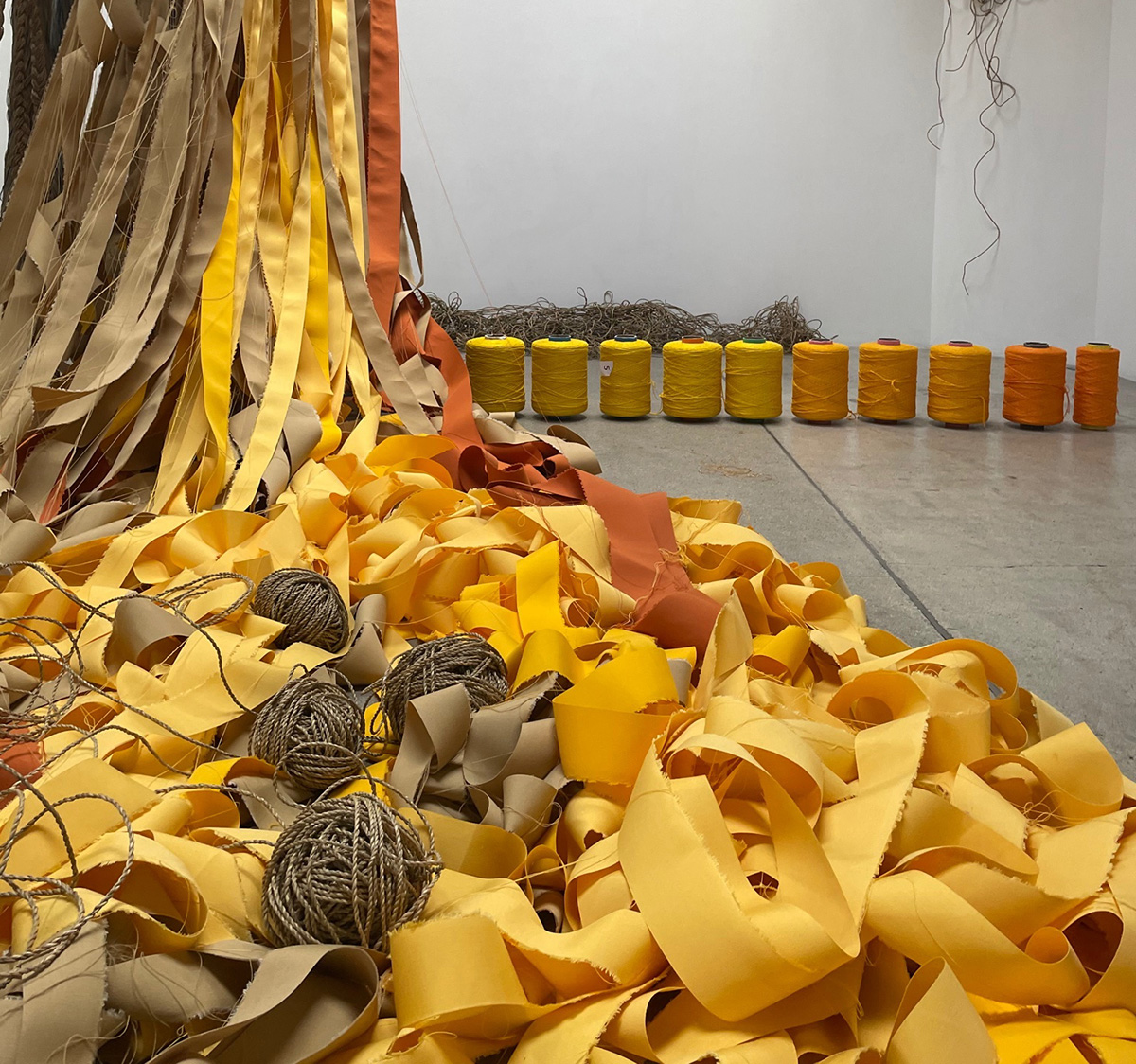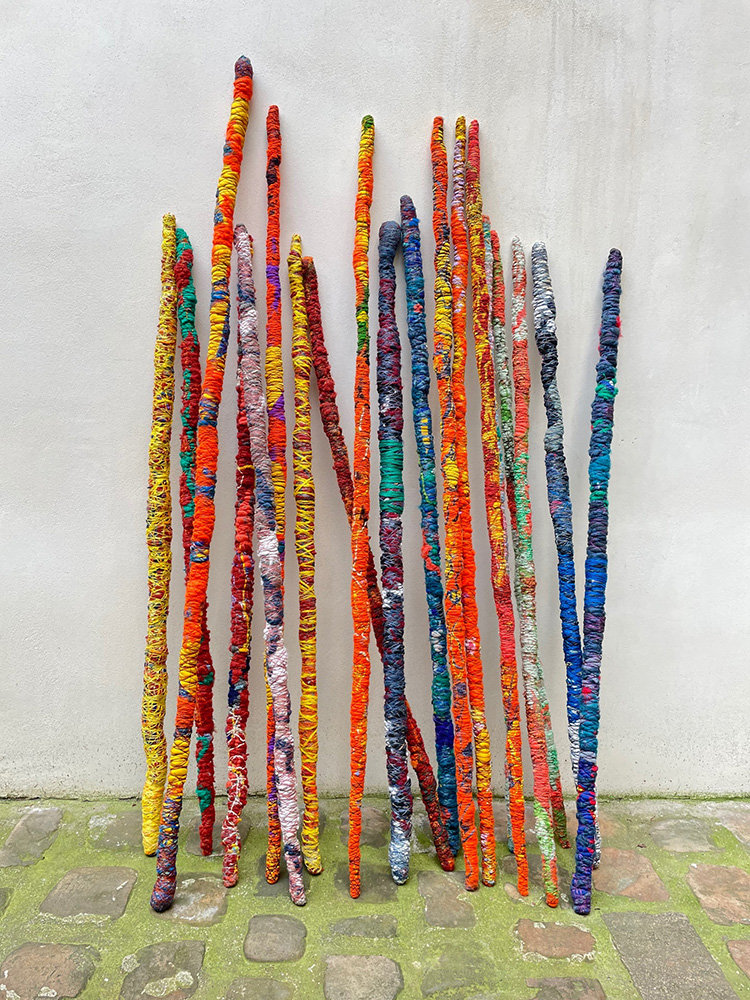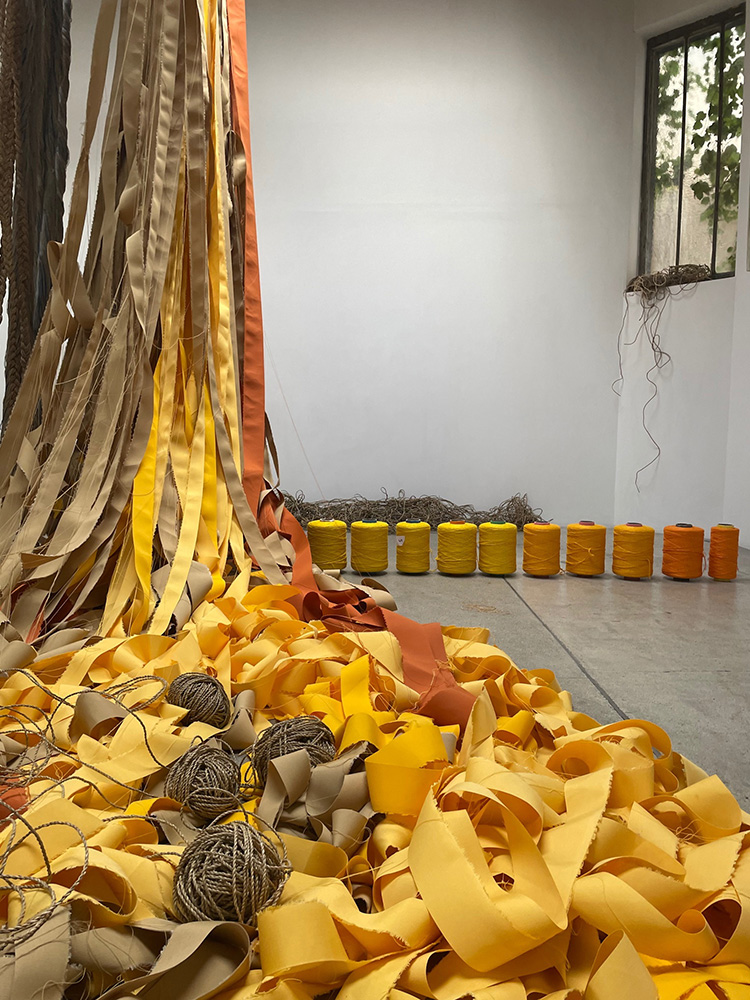PREVIEW: Sheila Hicks-Grace, No Gridlock
 Born in Nebraska, Sheila Hicks, trained as a painter, sees fibers and textiles as more than merely working materials, regarding them as both archaic and contemporary media linking interdisciplinary fields around the globe. Exploring and working in different cultures since the 1950s, she has been one of the most significant figures in contemporary art, whose multifaceted creations are characterized by an amazing sense of color and by intense engagement with architecture and photography.
Born in Nebraska, Sheila Hicks, trained as a painter, sees fibers and textiles as more than merely working materials, regarding them as both archaic and contemporary media linking interdisciplinary fields around the globe. Exploring and working in different cultures since the 1950s, she has been one of the most significant figures in contemporary art, whose multifaceted creations are characterized by an amazing sense of color and by intense engagement with architecture and photography.
By Efi Michalarou
Photo: galerie frank elbaz Archive
Inspired by the concepts of the Wiener Werkstätte and the Bauhaus, Sheila Hicks transcends media, national, and gender boundaries emphasizing the vast sociopolitical connotations of textiles. Her immensely rich knowledge of indigenous weaving practices—gleaned from working in North and Latin America, Europe, Africa, the Middle East, India, and Asia, is integral to her multi-faceted work. Hicks is a virtuoso in textile vocabularies and their historical traditions, interweaving the fine arts with design, the applied arts, and architecture to create objects and environments in which materiality, tactility, form, and color, anging from the subtle to the vibrantly luminous, become a fascinating language of their own. In the exhibition “Sheila Hicks Grace, No Gridlock”, the artist presents both recent and familiar works with room-filling sculptures, relating them to the architecture
Sheila Hicks was born in the small town of Hastings, Nebada, in 1934,. Though her family moved around a lot during the Depression, Sheila Hicks and her brother returned each summer to Hastings, where their great-aunts instructed them in music, art and reading, as well as pioneer skills like spinning, sewing and weaving. She majored in art at Syracuse University, then transferred to the Yale School of Art where she studied with Josef Albersand with George Kubler, the influential historian of Latin American art. A picture of Peruvian mummy bundles, shown in Dr. Kubler’s class, sparked her interest in textiles, which was further galvanized when Albers took her home to meet his wife, Anni, the celebrated Bauhaus weaver. Hicks went to Chile on a Fulbright grant and traveled around Latin America, absorbing the influence of weavers in Ecuador, Bolivia and Peru. She received an M.F.A. from Yale, then returned to Mexico, where she photographed architecture and exhibited her “minims”. Some of her weavings entered the collection of the Museum of Modern Art. She also married a Mexican-German beekeeper, moved to his ranch and gave birth to a daughter, Itaka. Having lived briefly in Paris in 1959, and finding that her life and marriage in rural Mexico conflicted with her artistic aspirations, she returned here with her daughter in 1964, supporting herself as a textile design consultant for Knoll Associates and through work for a German carpet manufacturer. Her second husband, a Chilean artist introduced her to surrealist and Latin American circles in Paris, and through a curator at the MoMA she received her first big public commission, for a wall hanging at the restaurant of Eero Saarinen’s new CBS building in New York. A defining moment in her career came with her invitation to exhibit at the Biennial of Tapestry in Lausanne in 1967. In postwar Paris tapestry was promoted as a glory of French culture, but by the late ’60s the French organizers of this event were looking to shake things up. The monumental public commissions that have occupied her, intermittently, since the mid-’60s have often required complex studio setups and a phalanx of assistants. At the same time her temporary, poetic installations of found fabrics, a cascading mountain of some five tons of clean Swiss hospital laundry, for example, which was her contribution to the Lausanne Biennial in 1977, or the floating curtains of baby bands (used to bind a newborn’s umbilical wound), which she showed in a gallery in Kyoto in 1978 — explore the pervasive presence of cloth in every facet of human existence, from birth until death.
Photo: Sheila Hicks, Courtesy the artist and galerie frank elbaz
Info: galerie frank elbaz, 66 rue de Turenne, Paris, France, Duration: 21/11/2021-31/1/2022, Days & Hours: Tue-Sun 10:00-18:00, www.galeriefrankelbaz.com


